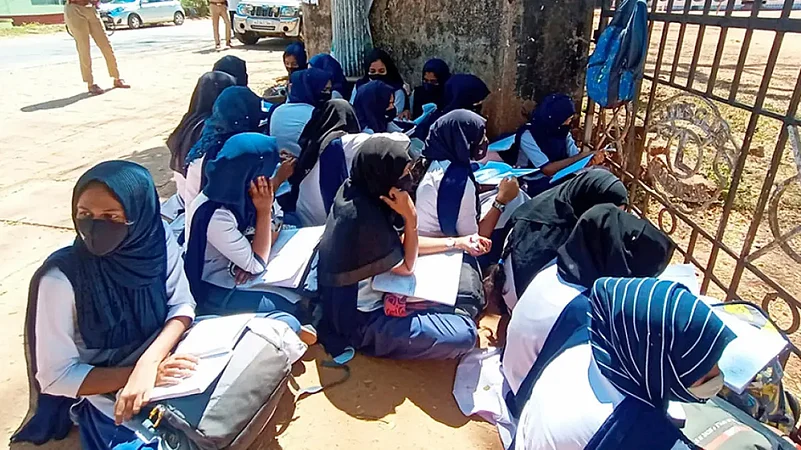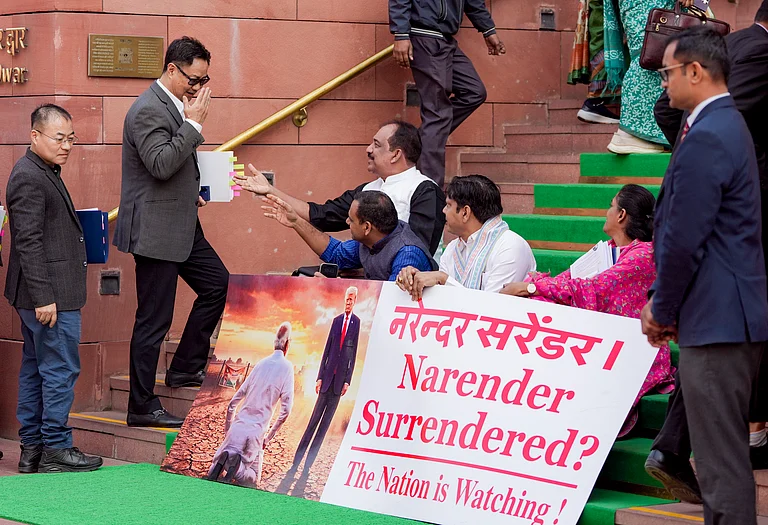The Karnataka High Court, which dismissed a batch of petitions by some Muslim girls from Udupi seeking permission to wear hijab inside classrooms of educational institutions, framed the entire case in the form of four questions. The court answered them accordingly.
The proceedings had started on February 8, initially by a single-judge bench of Justice Krishna S Dixit for two days and then by the full bench comprising Chief Justice Ritu Raj Awasthi, Justice Dixit and Justice J M Khazi.
The bench, which heard the case on a day-to-day basis, said it formulated four questions and answered them accordingly, taking a holistic view of the entire matter.
Is hijab an "essential religious practice" in Islamic faith that's protected under Article 25 of the Constitution?
The court said they are of the opinion that the wearing of hijab by Muslim women does not form a part of essential religious practice in Islamic faith.
Is prescription of school uniform not legally permissible as being violative of petitioners’ fundamental rights?
The prescription of school uniform is only a reasonable restriction constitutionally permissible which the students cannot object to, the court said.
Does the government order banning hijab violate fundamental rights?
We are of the considered opinion that the government has power to issue the impugned order dated and that no case is made out for its invalidation, the court noted.
This question asked whether the Karnataka government's order banning hijab was arbitrary and whether it violated Articles 14 and 15 of the Constitution.
Fourth question concerned disciplinary enquiry against respondents, including the concerned school, its principal, and teacher
The court said no case is made out for issuance of a direction for initiating such a disciplinary enquiry.
Regarding the prayer to initiate an inquiry by a premier investigation agency such as the Central Bureau of Investigation or the National Investigation Agency, the court said the petitions are liable to be rejected and "absolutely no case having been made out for indulgence".
With PTI inputs


























